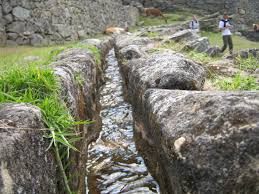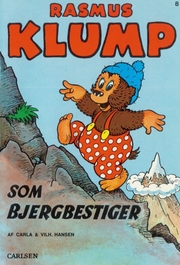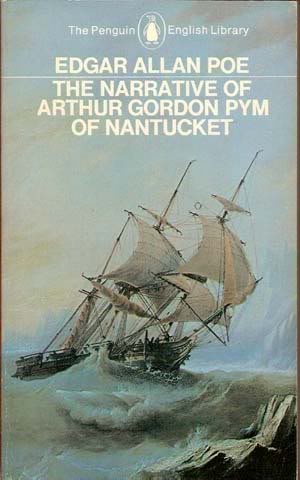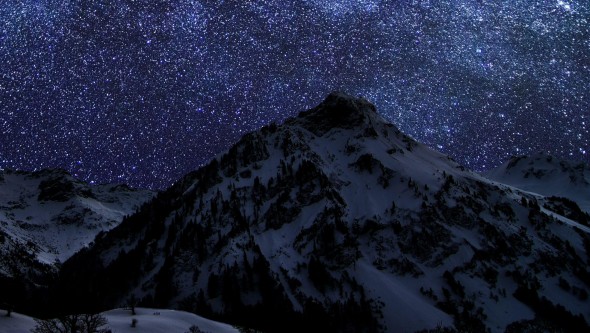VERTIGO: A look back in time
The other day we dined with a couple of Mexican friends who were going to travel to Ecuador. We talked about the country where I was several years ago spent a few weeks in the southern mountain chains. When I now fly home to Sweden from Rome and look out of the window, I find it quite odd that I do not become dizzy from vertigo. After all, I find myself thousands of feet up in the air, with nothing between me and the ground.
In those days was supposed to gather material among the mountains north of Hatun Cañar to write a report about an agricultural project, which included a component intended to increase the capacity of an already existing irrigation system, as well as engaging the locals in the construction of a new and more efficient channel.

The fields the Cañar Hatun highlands had since the times of the Incas been irrigated by ingeniously constructed channels and several of them were still in use. I got the idea to follow one of the old canals from its source high up in the Andes down to the place where its water ran dry after irrigating the fields during its passage across terraces and steep mountainsides. At a few places my companions and I had to make our way along narrow mountain paths, with the rock wall on one side and steep precipices on the other. On a couple of occasions I was seized by vertigo, but I was careful not to reveal my condition to the three attentive and considerate Cañaris who served as my guides.
On the narrow mountain trails, it was not just the vertigo which seized me, but also a feeling that I had ended up in a place I had dreamed about when I as a small boy ha flipped through the pages of my picture books. I had been especially fond of a Danish children's book called Rasmus Klump as Mountaineer (the bear who figures in these books is called Barnaby Bear in English). I often looked at it before I could read, what fascinated me most was the images of trails running along steep mountain sides. I found similar paths in Donald Duck magazines and in Tintin in Tibet. In those days I thought it would be a stupendous adventure to hike along such paths. I remembered it all when I more than thirty years later had ended up in such a place, with blue skies above me and surrounded by high mountains. However, the experience of walking along those paths was characterized by a much more unpleasant presence than the pleasurable feeling of expectation that I had receive through the pictures in my children´s books.


Quite often I dream about how I balance along cliff edged and occasionally it happens that I fall into the abyss. When I was in my teens I read Edgar Allan Poe's peculiar novel The Narrative of Arthur Gordon Pym of Nantucket and was intrigued by a description of how the novel's hero descends along a vertical rock wall:
I found my imagination growing terribly excited by thoughts of the vast depths yet to be descended, and the precarious nature of the pegs and soapstone holes which were my only support. It was in vain I endeavoured to banish these reflections, and to keep my eyes steadily bent upon the flat surface of the cliff before me. The more earnestly I struggled not to think, the more intensely vivid became my conceptions, and the more horribly distinct. At length arrived that crisis of fancy, so fearful in all similar cases, the crisis in which we begin to anticipate the feelings with which we shall fall — to picture to ourselves the sickness, and dizziness, and the last struggle, and the half swoon, and the final bitterness of the rushing and headlong descent. And now I found these fancies creating their own realities, and all imagined horrors crowding upon me in fact. I felt my knees strike violently together, while my fingers were gradually but certainly relaxing their grasp. There was a ringing in my ears, and I said, “This is my knell of death!” And now I was consumed with the irrepressible desire of looking below. I could not, I would not, confine my glances to the cliff; and, with a wild, indefinable emotion, half of horror, half of a relieved oppression, I threw my vision far down into the abyss. For one moment my fingers clutched convulsively upon their hold, while, with the movement, the faintest possible idea of ultimate escape wandered, like a shadow, through my mind — in the next my whole soul was pervaded with a longing to fall; a desire, a yearning, a passion utterly uncontrollable.

The vertigo is basically the only thing I remember from Poe's suspenseful novel that was chock full of nasty and exciting moments - mutiny, manslaughter, storms, cannibalism, ships getting lost in Antarctica and unexplained horrors. Even when I as an inexperienced boy was reading about the temptation to let go, to fall in to the abyss, I knew it was more to the story that just a feeling of vertigo. Behind it all was the strong temptation to give up all together; to ignore the everyday harsh struggle for survival, good work, diligent studies, paid bills, financial standing, house and home in order. In Lennon´s words:
You got to live,
you got to love, you got to be
somebody, you got to shove,
but it's so hard, it's really hard,
sometimes I feel like going
down
The temptation to give up, to let go, but that would mean a free fall into the abyss. Giving up does not help, fears for the future and grief over past mistakes remain We must keep our eyes fixed on where we place our feet, take one carefully considered step after another, ensure a proper foothold – don´t look around, do not look up/back or down/forward. If we succeed to overcome the ordeal, the triumph of not having given up awaits us. A soothing feeling meaning that the problems which seemed to be so extremely difficult and exhausting have slipped away into the past. Lennon again:
but when it's good, it's oh so
good
and when I hold you in
my arms, baby,
sometimes I feel like going
down
After more than an hour of narrow mountain trails we came to a green meadow where we rested in the thick grass by the irrigation canal´s clear, flowing water. One of my companions praised me for my good health and boldness. Maybe it was just flattery, but it made me proud and when I raised my head I could see the open sky above me and mountains around me.

While I wrote about Barnaby Bear I remembered Arthur Gordon Pym and when my friends mentioned "Ecuador" and the "Andes", image after image appeared behind my eyes. However, a connecting narrative was lacking. As a string of memories lining up along a thread that may be called the "Andes of my Mind". Episodes from visits to the highlands of Ecuador, Peru and Bolivia. I wish I could bind them all together to create a coherent story to be stored in the pantry that I want my blog to be. A place from which I, if necessary, could bring forth memories and fancies to think about, or use to make a tasty dish.
I take some pearls and look at them. They come from a journey through areas around the immense salt lakes of Uyuni and Coípasa in Bolivia's highlands. I and the driver, whose name I unfortunately have forgotten (he was a likeable man) drove at breakneck speed across the lakes, where smooth salt deposits stretched from horizon to horizon, like ice covering a vast sea expanse. He told me that in some places the salt deposits could be over a hundred feet thick, and although some parts of the lakes periodically were flooded with water, the thick salt layers just under the water surface were able to carry weight of a car, without any risk. The water that in most places cover the salt layer with an inch or two, reflects the sky in such a manner that passing over the lakes in a car feels more like flying than driving.

We saw flocks of suris, ostriches and vicuñas, wild llamas. An early morning the driver pointed out a condor, which far in the distance hovered over snow-white mountains. The nights were cold, rarely have I felt so much cold, but the day temperature could rise up to twenty degrees. At one point, the jeep stalled on a flat and desolate plateau. Sand had penetrated the engine and the driver had to blow or wipe away the oil soaked grains and the dirt that had settled in and around filters and gaskets. It took a long time. Night came and with it, the cold. The driver made me crawl under the jeep, where some of the engine heat still lingered and I wrapped myself in a blanket, while he continued to look for the malfunction. The sky was endless, deep violet and covered with sparkling stars. When the moon rose over the high plateau the distant mountain ranges turned white and steel blue, streaked with deep, black shadows.

There was no electricity in the villages, in the night they lay dark and cold under a starry sky. There was a party in a village where we intended to stay for the night. Most villagers, both men and women, were intoxicated and offered me singani andpisco. Soon, I danced with them, little scampering steps to the accompaniment of an orchestra of guitars and charangos, small guitars with sound boxes of armadillo shells. I asked them to play my favorite song, the beautiful Fox Incaico - NevandoEstá, It's snowing. When the tones spread across the square, where we danced to the light of blazing fires the snow began to fall. The music stopped, we all stood watching how big snowflakes silently fell from the sky. Everything was quiet, except for the crackling, flaming fires. After a minute or two, the band began to play, but the silence on the high plateau as I listened to it together with the villagers is something that has stayed with me. Aymaras do not generally bawl and bellow when they get drunk, they tend to talk quietly, while some slur and fall asleep.

One day when the sun was beating down on my head and I suffered from slight dizziness and nausea due to the oxygen deficiency at the heights, the driver brought me to a relative of his living high up in the mountains. When we came to see him in his miserable and dark house of adobe (bricks of unfired clay) and thatched roof he agreed to escort us along a narrow mountain path to a place where mummies still could be seen. They sat huddled in niche after niche, carved out of the limestone along the steep path that led to a dilapidated altar, which apparently was still in use. Human skulls, venerated as ñatitas, and others from llamas, were neatly lined up in front of what could be the remains of a chullpa, a funeral tower. When we returned it felt as if the mummies´ shriveled skeleton faces scoffed at me where they sat crouched in their niches, thickly bundled up with alpaca blankets that had turned brown from age. The old man who had taken us to the altar told me it was a holy place and that few persons outside of his community knew about it. Now he was worried that "men like me" could emerge and take "their dead" from them. It had happened five years ago, when a group of "Germans" had stolen three of the venerated mummies.

When I left the driver in the dusty town of Oruro, he ran around the front of the jeep to embrace me. Unfortunately, he left the door wide open on the driver's side and when a truck passed at full speed it tore the door from its hinges. As if nothing happened, the truck disappeared in a cloud of dust. It was the University's jeep and the driver was devastated, nevertheless he insisted that I had to leave the place as soon as possible and made me promise that I would not say anything about the accident to the university authorities in La Paz. When I waved at him through the bus window, he stood weeping in the square in Oruru and I have not seen him since. He was a very friendly man in his fifties, a family man with six children in the city of Potosí. There are many people I have left behind and never seen again.
Much of my life has been like that. I have spent periods beyond my everyday life, like when I walked along the mountain trail in the Andes, or visited the plateaus south of Oruro. Periods like that can maybe be likened to Arthur Gordon Pym´s climb down the cliff. I cross a connecting link, like a threshold, but I do not stay there. Sure, anything can happen, I may crash to the ground or get completely lost, but the risk is small. I'm an occasional visitor who gazes into something unknown to me, there is fascination, perhaps mixed with some anxiety. However, I am just passing by. I will not stay. I do not belong there.


.jpg)
.jpg)
.jpg)
.jpg)
.jpg)
.jpg)